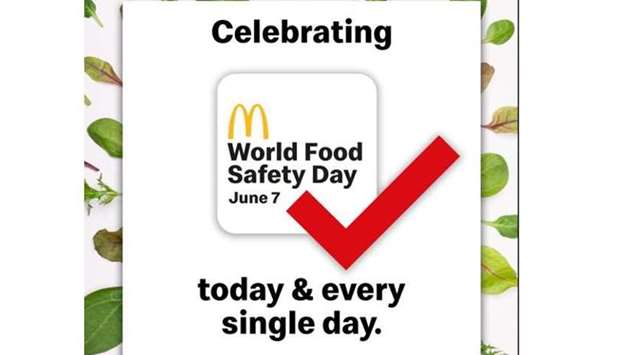* Food safety doesn’t begin inside the restaurant: integration of food safety into every aspect of the operations is a necessity.
& According to Tetra Pak’s research study, 60% of the world population is concerned about food safety and hygiene amid the pandemic.
While Covid-19 has not been transmitted through food [AR1] , the pandemic has sharpened the focus on food safety issues. In addition to hygiene, antimicrobial resistance, and zoonotic diseases, food fraud and the benefits of digitalizing food systems have also emerged at the forefront of importance for those in the food industry. Concerns about the safety of food products and their traceability have been put under the spotlight by consumers as a result of the COVID-19 pandemic, according to Tetra Pak’s research study. The research noted that 60 per cent of the world’s population is concerned about food safety and hygiene amid the pandemic. In addition, more than 50 per cent of consumers believe improving food safety is the responsibility of manufacturers.
In the wake of these findings and the reprioritization of consumer needs, McDonald’s is joining organizations, businesses, governments, the general public, and food and health organizations on June 7th to reaffirm its commitment to World Food Safety Day. Created by the United Nations (UN) in 2018, the overarching objective is to shed light on the vitality of this matter as the global community celebrates the event’s second annual edition.
As a foundational responsibility, serving safe and delicious food to customers in the GCC is the number one priority for McDonald’s. Moreover, serving safe food doesn’t start and end inside the kitchen, with safety integrated into every aspect of McDonald’s operations, including food sourcing, menu development, packaging, distribution and logistics, and the daily running of restaurants.
When it comes to food safety, McDonald's empowers everyone: from suppliers that grow the food for its restaurants, to restaurant owners and employees. Everyone has a role in supporting food safety, and McDonald’s focuses on it in many different ways, including:
- Promoting a Food Safety Culture throughout McDonald's with programs to educate employees about food safety practices.
- In the supply chain, McDonald’s has developed and implemented food safety standards based on food safety best practices. All suppliers must comply with McDonald’s food safety requirements and are subject to compliance audits.
- In the restaurants, employees and managers are trained in food safety, with food safety checks conducted in all McDonald's restaurants.
McDonald's uses these and other programs to engage everyone in the culture of food safety and promote the message that food safety in all its aspects is everyone's business, from farm to fork.
Mr. Mithqual Abu Nasser, General Manager of McDonald’s Qatar said, “Every decision we make is grounded in our food safety vision, and our customers’ trust in our food is our most important value. We implement food safety best practices across all our operations, starting with how we work with our suppliers, to how the food is stored and distributed, to how we monitor the safety checklists digitally and ensure all our products are traceable.”
McDonald’s calls on all businesses and consumers to join this global UN day to continue raising awareness and thanks the UN for its continued efforts in highlighting the importance of food safety.
[AR1]This has been confirmed by the UN.

